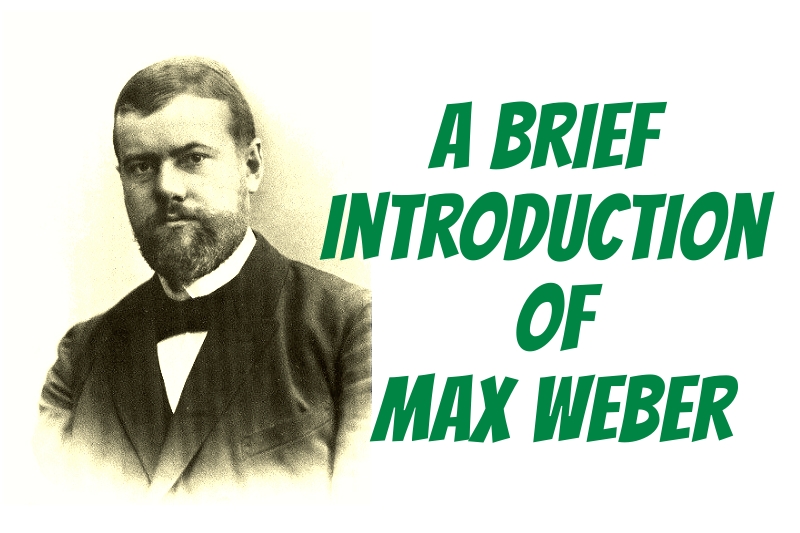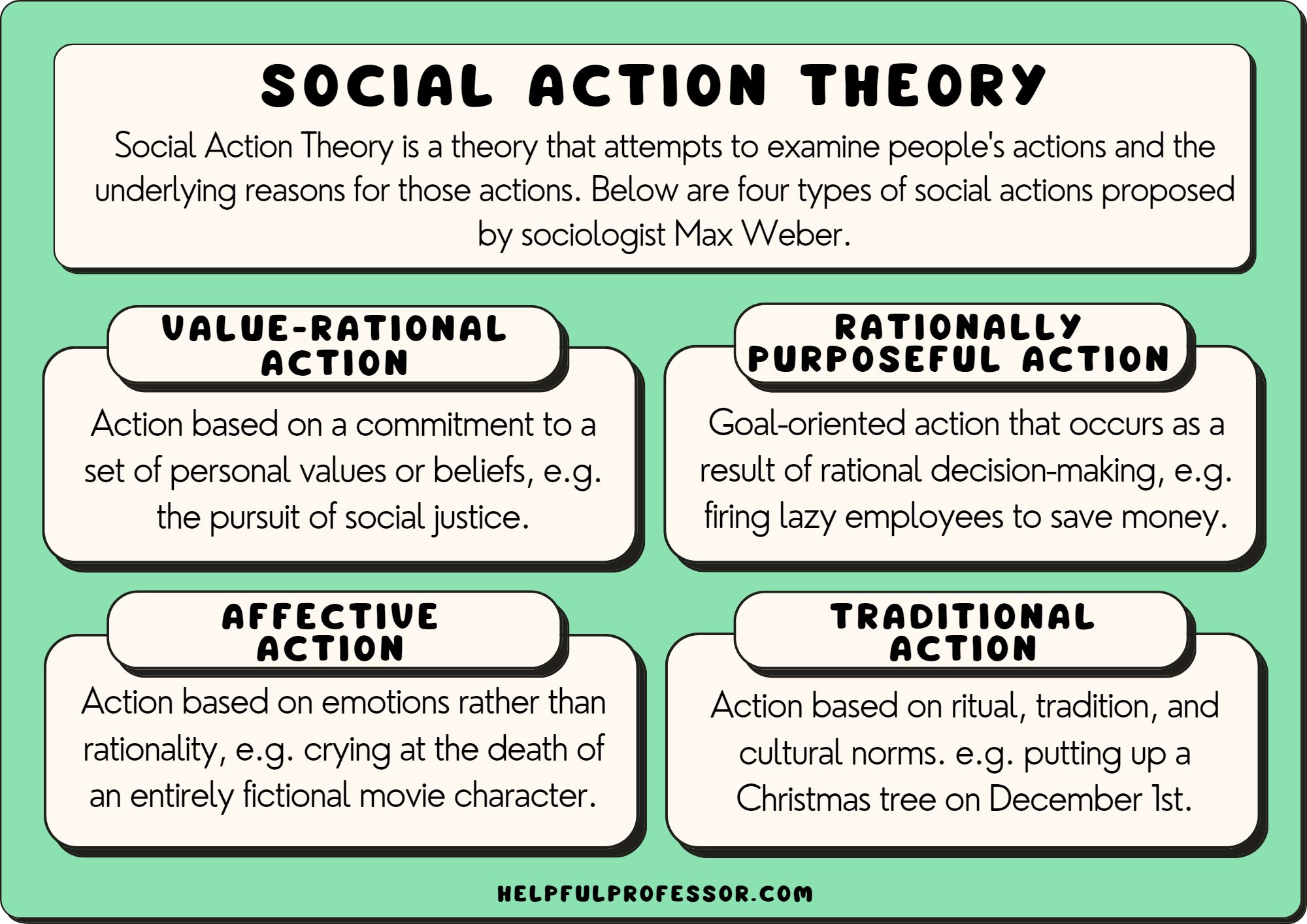Imagine a bustling city, where individuals, cultures, and institutions collide in a relentless symphony of human interaction. What forces shape this vibrant tapestry? Who are the architects of social order and its inevitable disruptions? These are the questions that captivated Max Weber, the German sociologist renowned for his groundbreaking theories, which continue to influence our understanding of the intricate workings of society. His visionary lens provided insights into the power dynamics, social structures, and cultural nuances that define our world. Join us as we embark on a journey to decipher the rich tapestry of Weber’s sociological theory, traversing through the complex landscapes of power, rationality, and the human condition.

Image: sociologyarticle.blogspot.com
Weber’s theory, often labelled as “interpretive sociology,” stands apart from other theoretical frameworks, prioritizing the subjective experiences and motivations of individuals. He sought to understand why people act the way they do, recognizing that actions are not merely reactive but driven by a complex interplay of factors, including beliefs, values, and interpretations. This approach led him to explore the intricacies of social structures, emphasizing the role of power relationships and the impact of social institutions on individual agency.
The Pillars of Weber’s Theory: Power, Rationality, and Bureaucracy
Weber’s theoretical edifice rests upon three fundamental pillars: power, rationality, and bureaucracy. These core concepts, interwoven with his groundbreaking ideas on social action and social stratification, paint a vivid picture of society in all its intricate complexity. Let’s delve deeper into each of these pillars:
1. Power: The Essence of Social Interaction
Weber viewed power as the central force that shapes social interactions, defining who gets what, when, and how. Not simply a matter of brute force, he recognized its multi-faceted nature, encompassing not just coercion, but also influence and persuasion. His concept of “legitimate authority” further elucidates the nuances of power, exploring how individuals come to accept the authority of others. This concept introduces three distinct types of legitimacy: traditional, charismatic, and rational-legal.
- Traditional Authority: This type derives its legitimacy from the sanctity of tradition and custom, where power is conferred through lineage or age-old practices. Think of the unwavering loyalty to a monarch or the respect accorded to elders in traditional societies.
- Charismatic Authority: Here, power flows from the extraordinary qualities and inspirational charisma of an individual. Individuals like Mahatma Gandhi or Martin Luther King Jr., who inspired countless followers through their captivating words and actions, exemplify this type of authority.
- Rational-Legal Authority: This form of authority is rooted in impersonal rules and regulations enshrined in law and established procedures. It thrives in modern societies with complex bureaucracies and legal frameworks, where power is delegated based on qualifications and competence, as exemplified by elected officials or appointed judges.
2. Rationality: The Engine of Modern Society
Central to Weber’s theory is the concept of “rationalization,” which he saw as the driving force behind modernity. He believed that Western society was undergoing a transformation characterized by a shift from traditional, value-driven modes of thinking to a more rational, calculative, and efficient approach. This increasing emphasis on rationality, particularly in economic and social spheres, propelled the rise of bureaucracies and technological advancements.
Weber, however, did not blindly celebrate the rise of rationality. He saw it as a double-edged sword, leading to a disenchantment of the world as traditional values and personal connections were replaced by cold, impersonal systems. This “iron cage of rationality” could stifle creativity, individuality, and the human spirit, leading to a sense of alienation and meaninglessness.

Image: animalia-life.club
3. Bureaucracy: The System of Order
Bureaucracy, intricately linked to Weber’s theory of rationality, emerged as a central focus of his sociological explorations. He recognized bureaucracy as the hallmark of modern societies, a system of hierarchical organization, formal rules, impersonal procedures, and specialized tasks. This system, while efficient and predictable, could also lead to negative consequences, such as depersonalization, red tape, and a rigid, inflexible structure.
Weber’s analysis of bureaucracy highlighted its inherent contradictions. While offering efficiency and clarity, it could also stifle individual initiative and creativity, fostering a sense of alienation among individuals caught in the bureaucratic machine. This tension between efficiency and humanity continues to be a point of contention in contemporary discussions on the role of bureaucracy in our lives.
Applying Weber’s Theories: Insights for Today
From the social fabric of traditional societies to the complexities of modern institutions, Weber’s theories offer a powerful lens for analyzing the dynamics of power, the impact of rationality, and the complexities of social structures. These insights remain relevant today, providing valuable frameworks for understanding:
- Understanding Power Dynamics: Weber’s framework can shed light on power dynamics within organizations, political systems, and social groups. Recognizing the different sources of power and their impact on individuals and communities helps us engage with power structures in a more informed and critical manner.
- Navigating Bureaucratic Systems: Weber’s analysis of bureaucracy remains relevant in today’s world, especially in navigating the complexities of large organizations, government agencies, and corporations. Understanding the inherent strengths and limitations of bureaucratic structures empowers us to better navigate these systems and advocate for improvements.
- Appreciating Cultural Diversity: Weber’s work on the cultural influence on social action provides a foundation for understanding the diverse cultural practices and values that shape different societies. This understanding fosters empathy and appreciation for the myriad ways in which people perceive and interact with the world.
Weber’S Sociological Theory
Bridging the Gap: Empowering Yourself with Weber’s Insights
By embracing Weber’s theoretical framework, we can cultivate a deeper understanding of the forces that shape our social world. We can use his insights to navigate the complexities of contemporary issues, from social inequality to the rise of technology, and to build bridges of understanding across diverse cultures and perspectives.
This journey into Weber’s sociological theory is not a passive endeavor. Rather, it’s an invitation to engage, reflect, and actively participate in the shaping of our social reality. By embracing the transformative power of knowledge and the critical insights offered by Max Weber, we can all contribute to a more just and equitable world, reflecting the power of sociological theory to illuminate the path toward a brighter future.






